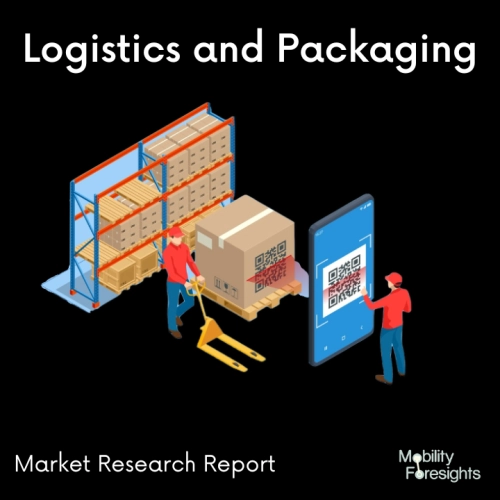
- Get in Touch with Us

Last Updated: Apr 25, 2025 | Study Period: 2024-2030
While bio plant based polymers are macromolecules derived from plant wastes, biodegradable plant based polymers in plant based food packaging are manufactured by culturing carbohydrates via bacteria.
This improves the food preservation characteristics of the plant-based food packaging.
It is possible to create a variety of packing materials that are heat- and water-resistant, and that range in thickness and hardness from cotton, trees, hemp, and wood pulp-derived cellulose.
Typically, cellulose can be used to create cellophane, film, netting bags, and food bags. It refers to packaging designs that have the least negative influence on the environment.
They accomplish this by reducing the amount of packaging trash produced, utilizing renewable energy during production, and maximizing sustainable materials (such recyclable or biodegradable packaging components). In a nutshell, sustainable packaging is all about being aware of the carbon footprint of a company.

The global plant based packaging market accounted for $XX Billion in 2021 and is anticipated to reach $XX Billion by 2030, registering a CAGR of XX% from 2022 to 2030.
The Defense Research and Development Organization (DRDO) of India has introduced items for environmentally friendly packaging that are made from natural, plant-based, food-grade ingredients that decompose quickly.
The environmentally friendly packing bags that DRDO and Ecolastic have introduced are available in both water-soluble and water-resistant varieties. The bags are supposed to have no negative effects on the environment and can biologically decompose in three months.
Compared to conventional polyethylene bags, which take years to decompose, the organizations said that the packing bags are environmentally friendly, economical, and a safe substitute for single-use plastics in the ocean.
Coca-rival Cola's also sells bottles made of plants in some areas.
India is where this plant-based packaging material was first developed, according to a Coca-Cola India .The Plant Bottle, a "fully recyclable PET plastic beverage bottle made partially from plants and which looks and functions just like traditional PET plastic bottle.
Plantable Health Inc. declares that it has chosen Grounded Packaging as its new packaging vendor, offering recyclable, carbon-neutral packaging created from plant-based bioplastics.
Plantable will be able to produce its new packaging with a carbon negative footprint thanks to Grounded's Sugarflex materials derived from sustainable sugarcane. With the switch to Grounded's Biovac bags, Plantable aims to replace virgin fossil fuel while also recovering bottles of plastic that are otherwise destined for the ocean through Grounded's "this bag saves" platform.
With its vegan, nut, dairy, and egg-free delights, Divvies is revolutionising mainstream and specialty bakery and grocery channels. well natured Products Inc., a North American leader in earth-friendly plant-based products, today announced its new relationship with Divvies.
This corporate cooperation benefits both parties involved as the two like-minded organisations pool their resources and knowledge to achieve a bigger positive environmental impact. Long-term partnerships help both good natured and Divvies reach wider markets and are another core shared value between the two groups.
An innovative sustainable paperboard packaging solution that reflects the brand's natural philosophy has been developed in partnership with start-up Mergulo, which makes a premium plant-based butter substitute. Graphic Packaging International is a global market leader in paper-based packaging solutions.
The Mergulo sustainable packaging vision was realised through virtual collaboration between the Graphic Packaging and Mergulo teams. Under normal circumstances, this work would have been done internally.
Coca-cola works with partners to create a prototype bottle completely made from plant-based resources. With the introduction of the first beverage bottle ever manufactured entirely of plant-based plastic, except the cap and label, The Coca-Cola Company's journey toward sustainable packaging reaches a significant turning point.
PlantBottle packaging having a smaller environmental impact than conventional PET while still functioning, recycling, and looking the same. The new prototype plant-based Coca-Cola container is manufactured from plant-based paraxylene (bPX), which has been transformed into plant-based terephthalic acid using a new technology by Virent (bPTA).
| Sl no | Topic |
| 1 | Market Segmentation |
| 2 | Scope of the report |
| 3 | Abbreviations |
| 4 | Research Methodology |
| 5 | Executive Summary |
| 6 | Introduction |
| 7 | Insights from Industry stakeholders |
| 8 | Cost breakdown of Product by sub-components and average profit margin |
| 9 | Disruptive innovation in the Industry |
| 10 | Technology trends in the Industry |
| 11 | Consumer trends in the industry |
| 12 | Recent Production Milestones |
| 13 | Component Manufacturing in US, EU and China |
| 14 | COVID-19 impact on overall market |
| 15 | COVID-19 impact on Production of components |
| 16 | COVID-19 impact on Point of sale |
| 17 | Market Segmentation, Dynamics and Forecast by Geography, 2024-2030 |
| 18 | Market Segmentation, Dynamics and Forecast by Product Type, 2024-2030 |
| 19 | Market Segmentation, Dynamics and Forecast by Application, 2024-2030 |
| 20 | Market Segmentation, Dynamics and Forecast by End use, 2024-2030 |
| 21 | Product installation rate by OEM, 2024 |
| 22 | Incline/Decline in Average B-2-B selling price in past 5 years |
| 23 | Competition from substitute products |
| 24 | Gross margin and average profitability of suppliers |
| 25 | New product development in past 12 months |
| 26 | M&A in past 12 months |
| 27 | Growth strategy of leading players |
| 28 | Market share of vendors, 2024 |
| 29 | Company Profiles |
| 30 | Unmet needs and opportunity for new suppliers |
| 31 | Conclusion |
| 32 | Appendix |